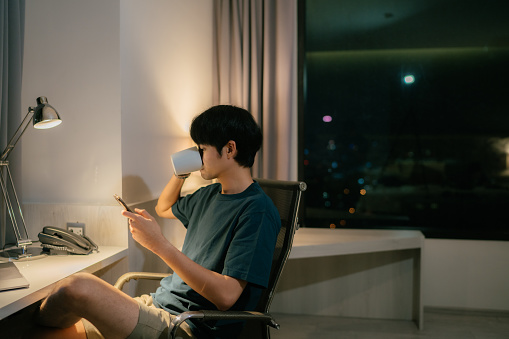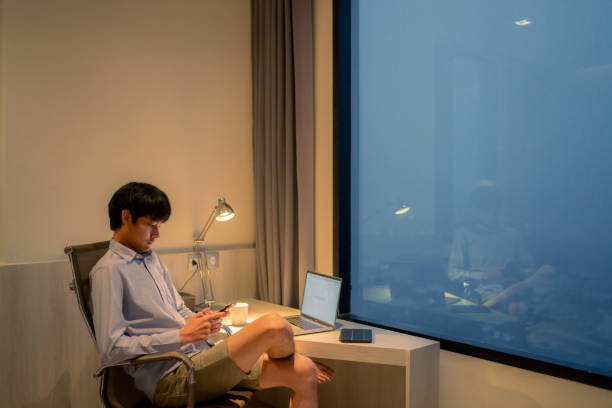We know the importance of sleep in maintaining our health and boosting our immune systems, which is why it can be so annoying when we are awakened by noise. Even if we are partially awakened by every bang, crack, and thud, our subconscious is disturbed, keeping us from entering a deeper sleep where all the healing takes place.
Noise interferes with the onset and progression of sleep, having serious negative impacts on health. The following measures should be taken by night shift workers to reduce noise: move or soundproof the bedroom; use white noise; modernize appliances; establish a dark environment; refrain from stimulants; communicate honestly; handle snoring; and be aware of light.
It can be quite difficult for night shift workers to avoid noise pollution, which is what this study accurately refers to it as. This does not, however, imply that there is no hope left and that we should give up. This article looks at where and how night shift employees might find peace to get a better night’s sleep.
How to Find Quiet for Night Shift Workers
After a warm shower and a few mouthfuls of something delicious, you’ll probably want to go to bed right away after working the night shift. However, the unpleasant reality of the night shift is that noise interference frequently deviates from this ideal plan because it is present everywhere.
Unless you completely soundproof your bedroom, live in a cave, or have your basement “done up,” as we shall discuss in a moment, noise from your neighbors, people inside your own home, machines around the house, and modes of transportation will continue to irritate you.
It can be challenging to manage these environmental noises at times if you live close to a highway or metro, or if your neighbors are very talkative. You’ll need to figure out a technique to shield yourself from the noises coming inside in this situation. As a third shift worker, there are a lot of methods you might make silence a reality. We’ll go through those in the section after this one.
1. Reposition your room
What room do you sleep in? If most of your family members’ activities take place in the room where you sleep, you might want to think about switching rooms. If there are people there when you need to rest, choose a room that is farthest from the main, high-activity area. By doing this, you can stop the sounds from fast entering your space.
A night shift nurse I know outfitted her home’s basement as a “last option” and hasn’t looked back since. She claims that the environment is calm, quiet, and dark—the ideal conditions for a deep night’s sleep. Could this happen to you too if you have a basement?
It’s probably not an option for you to simply move bedrooms if you live in a small apartment that is noisy all around. Perhaps you might think about using something else, like these stylish sleeping headphones or this Bluetooth model that doubles as an eye mask. The reviews are rather good and merit a try. Instead of listening to my neighbor’s playlist, I much prefer to do so!
2. Bedroom Soundproofing
Install soundproof windows if your window is where most of the noise enters your room. To reduce noise, you can also fill gaps around your windows with foam. If not, think about going a little farther and making your entire bedroom soundproof! This will ensure that no noises are heard.
Don’t worry if you can’t insulate your room right now; there are other techniques to muffle the noise. Your room should have plush surfaces. Contrary to hard surfaces that reflect sound, smooth surfaces absorb sound. You can add furniture with cushions, rugs, and thick drapes to your room to help with sound absorption.
Shift Work Bedroom Ideas: Create the Ultimate Sleeping Oasis is an article we did publish, and it might also be useful right now.
To help absorb sound from adjacent rooms, place books against your door or walls that are most susceptible to noise. All of these additions to your bedroom may assist muffle noise coming from the outside or inside your home.
3. Discontinue Noisy Appliances
Is your refrigerator, air conditioner, or heater making a lot of loud, distracting noise? Repairing it will lessen the noise (and probably your electricity bill). It might be the wisest choice you’ve made in a while!
4. Replace Your Comforter
Perhaps your bed isn’t as comfortable as it should be, or it creaks more than your knees, which causes you to wake up easily. A comfy weighted blanket, a nice mattress, and sheets. Although it initially appears pricey, it is absolutely worth it.
Invest in these things so that you won’t wake up from a purported restful sleep with aches or itches. You might not be able to function efficiently because of such pains, and you’ll be sleepy all day.
Don’t overlook your pet’s bed when you’re remodeling your bedroom. Ask yourself honestly if your dog is making too much noise. Do you require more support, or will a new bed be helpful?
5. Wear eye masks and earplugs
For a variety of reasons, none of us can soundproof our bedrooms, and that’s good. As long as they don’t prevent you from falling asleep, using earplugs could be able to help. According to a study done on severely ill patients, using eye masks and earplugs lengthened N3 sleep.
6. Speak Out
Talk to them and try to come to an agreement if there are people in your home or neighborhood who are noisy and keeping you from getting a good night’s sleep.
You can ask your family or roommates to wear headphones while watching TV, or ask them to refrain from using the lawnmower while you’re trying to sleep. Can you make a concession and pledge to mow the yard when you wake up? Seems out of control, but might be an excellent solution.
You will sleep deeper and more soundly if there is silence around you. Making a plan before going to bed will help you feel less concerned about waking up early. You can do things like put out your clothing, prepare meals in advance, and do other things to make you feel less stressed about having to get up early.
7. Deal with snoring
Does your boyfriend snore, keeping you up at night? The straightforward remedy is known as Vital Sleep.
A properly fitted mouth guard helps to open up the jaw muscles involved in snoring.
If you and your partner have a tendency to fall asleep at the same time, this implies that if they snore, it can wake you up. Check out these snore-preventing gadgets to improve your partner’s sleep and your own uninterrupted sleep. It is quite simple to use this technology to make a significant effect.
How to Use Sound Effectively While Working the Night Shift
If noise is unavoidable despite your best efforts, you can employ another sound to drown out the many disruptive noises.
Even though noise can be bad for your health, you can employ constant background noise to aid in better sleep. You become awakened from sleep when the sounds are erratic.






